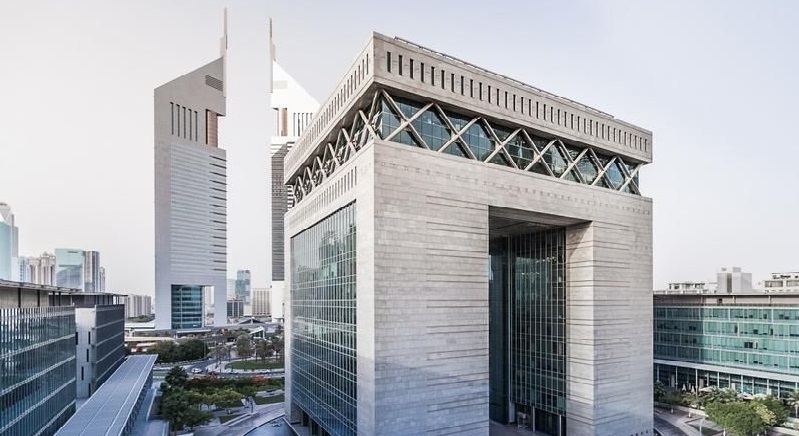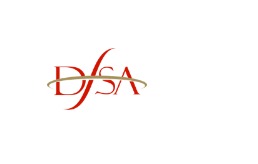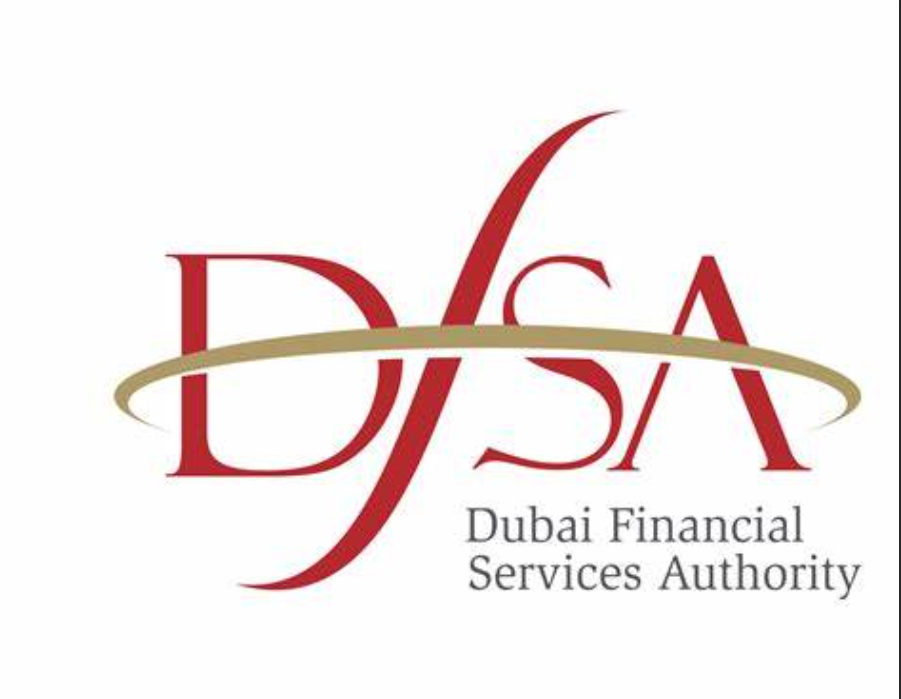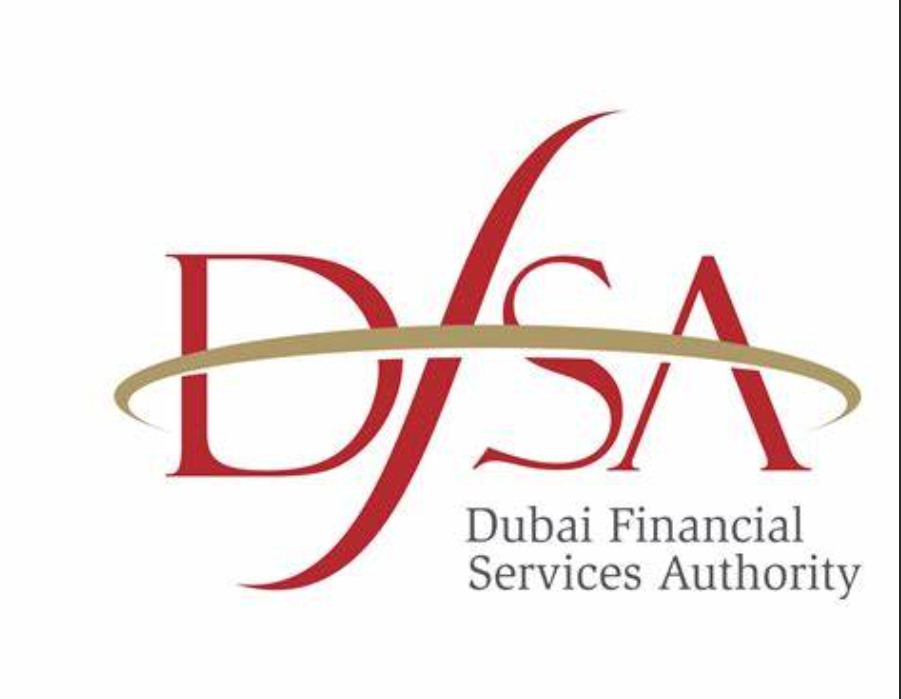DFSA
About US
The DFSA is the independent regulator of financial services conducted in or from the DIFC, a purpose-built financial free zone in Dubai, UAE.
The DFSA’s regulatory mandate includes asset management, banking and credit services, securities, collective investment funds, custody and trust services,commodities futures trading, Islamic finance, insurance, an international equities exchange, and an international commodities derivatives exchange. In addition to regulating financial and ancillary services, the DFSA is responsible for supervising and enforcing anti-money laundering (AML) and counter-terrorist financing (CTF) requirements applicable in the DIFC. The DFSA has also accepted a delegation of owers from the DIFC Registrar of Companies (RoC) to investigate the affairs of DIFC companies and partnerships where a material breach of DIFC Companies Law is suspected and to pursue enforcement remedies available to the Registrar.
WHO WE ARE
Vision
To be an internationally respected regulator, leading the development of financial services through strong and fair regulation.
Mission
To develop, administer and enforce world-class regulation of financial services within the DIFC.
Regulatory Approach
To be risk-based and to avoid unnecessary regulatory burden.
Values
To expect high standards of ethical conduct and integrity from the DFSA and its people.
To demonstrate professionalism, independence, efficiency, leadership and resolve in the discharge of our responsibilities.
To ensure administrative fairness, consultative process, accessibility, impartiality and accountability in the performance of our functions.
Why We Are Here
- We authorise and register institutions and individuals who wish to conduct financial services in or from the DIFC.
- We supervise regulated participants and monitor their compliance with the laws, regulations and rules that apply.
- We enforce the legislation that we administer.
Our regulatory regime has been tailor-made to suit the DIFC, to the highest international standards. The result is clear and succinct legislation that is appropriate for a modern financial centre.
Objectives and Principles
The DFSA has established, and strives to maintain, an environment that fosters the DIFC guiding principles of integrity, transparency and efficiency. It has done so by embedding uncompromisingly high standards in a clear, succinct and flexible regulatory framework based on international best practices relevant to a modern international financial centre.
In discharging its regulatory mandate, the DFSA has a statutory obligation to pursue the following objectives.
- To foster and maintain fairness, transparency and efficiency in the financial services industry (namely, the financial services and related activities carried on) in the DIFC.
- To foster and maintain confidence in the financial services industry in the DIFC.
- To foster and maintain the financial stability of the ?nancial services industry in the DIFC, including the reduction of systemic risk.
- To prevent, detect and restrain conduct that causes or may cause damage to the reputation of the DIFC or the ?nancial services industry in the DIFC, through appropriate means including the imposition of sanctions.
- To protect direct and indirect users and prospective users of the ?nancial services industry in the DIFC.
- To promote public understanding of the regulation of the ?nancial services industry in the DIFC.
- To pursue any other objectives as the Ruler may, from time-to-time, set under DIFC Law.
In exercising its powers and performing its functions, the DFSA shall take into consideration the following guiding principles, being the desirability of:
- Pursuing the objectives of the DIFC as set out under Dubai Law in so far as it is appropriate and proper for the DFSA to do so.
- Fostering the development of the DIFC as an internationally respected financial centre.
- Co-operating with and providing assistance to regulatory authorities in the United Arab Emirates and other jurisdictions.
- Minimising the adverse effects of the activities of the DFSA on competition in the financial services industry.
- Using its resources in the most efficient way.
- Ensuring the cost of regulation is proportionate to its benefit.
- Exercising its powers and performing its functions in a transparent manner.
- Complying with relevant generally accepted principles of good governance.
DFSA Role
The DFSA administers the Regulatory Law 2004, which is the cornerstone legislation of the regulatory regime. The Law establishes the constitution of the DFSA and enables the creation of the regulatory framework within which entities may be licensed, authorised, registered and supervised by the DFSA.
Under the Law, the DFSA has the power to enforce the Law and Rules that apply to all regulated participants within the DIFC.
The DFSA also administers the Markets Law 2012. This law governs the activities and conduct of financial and market participants.
The DFSA also administers the Law Regulating Islamic Financial Business 2004, the Collective Investment Law 2010 and the Investment Trust Law 2006.
The DFSA also strives to detect and prevent money laundering activities within the DIFC, and will work closely with the UAE Central Bank in this vital area.
CORPORATE SOCIAL RESPONSIBILITY
Corporate Social Responsibility (CSR) is the responsibility of an organisation for the impacts of its decisions and activities on society and the environment through transparent and ethical behaviour that is consistent with sustainable development and the welfare of society; takes into account the expectations of stakeholders; is in compliance with applicable law and consistent with international norms of behaviour; and is integrated throughout the organisation.
The DFSA has adopted a strategic approach to giving to society, through innovative initiatives and programmes for sharing knowledge. In 2014 the DFSA launched Bawabaty ‘My Gateway’ a Financial Services Awareness initiative targeted at the UAE youth sector with the aim to introduce UAE Nationals to field of Financial Services and work ethics in a professional working environment.
The DFSA also developed a Summer Training Programme that provides UAE National undergraduates with the opportunity to work in the DFSA to gain work experience and skills in four of our operational areas and they are; Corporate Affairs, Finance and Administration, Human Resources and Information Technology.
Furthermore, the DFSA family contributes and participates in many local CSR initiatives such as; packaging goods for labourers and blood donations.
Bawabaty
In March 2014, the DFSA Launched Bawabaty or ‘My Gateway’.
Bawabaty is a Financial Services Awareness Initiative for the Local Community, a new initiative developed by the DFSA to improve the work readiness of UAE Nationals joining the workforces of the future and to reach out to different sections of the local community.
In the first instance, Bawabaty will target the UAE youth sector, and through a series of seminars and events, Bawabaty aims to introduce UAE Nationals to topics such as business ethics and financial literacy. Facilitating learning and understanding of the financial services industry, as a whole, will better provide individuals with the skills and knowledge that employers typically look for.
The principal objectives of Bawabaty are to 1) to meet the growing needs of UAE National graduates wishing to pursue a career in financial services; 2) to provide lifelong learning opportunities for our local community; and 3) to support community education in financial services, in the UAE.
Bawabaty’s inaugural event held at the DIFC Centre of Excellence on March 17 focused on ‘Integrity at Work’ and saw the DFSA partnering with the Chartered Institute for Securities & Investment (CISI). The workshop, which included individual voting machines, real-time results and lively debates, provided attendees with the unique opportunity to vote on a range of ethical challenges, drawn from real-life situations from the workplace.
The highlights of the inaugural workshop included the lively, well-informed and instructive discussions facilitated by Mr Kevin Moore, Chartered MCSI, CISI Director Global Business Development. His “Integrity At Work” presentation provided participants with the unique opportunity to vote on a range of ethical challenges, drawn from real-life workplace situations. These discussions allowed the fruitful exchange of ideas, experiences and opinions between the participants on wide ranging issues faced by young graduates in the UAE.
Summer Training Programme
Bawabaty aims to raise awareness of financial services regulation in the UAE National community. As part of this community initiative the Summer Training Programme allows undergraduates to have work experience in the DFSA.
The DFSA would like to support UAE National youth employability through the provision of internships to gain work experience and skills in four of our operational areas. Please click here for more information.
HOW WE REGULATE
In fulfilling its mandate as the sole independent financial services regulator for the DIFC, the DFSA performs a number of functions.
Policy and Rulemaking Authorisation
Recognition Supervision
Enforcement International Co-operation
The DFSA’s stated approach is: “To be a risk-based regulator and to avoid unnecessary regulatory burden”. We believe regulation should be directed to the mitigation of risks that would otherwise be unacceptable. We also believe that compliance obligations should be proportionate to the mitigation of those risks within a framework that enables regulated entities to effectively and efficiently meet their compliance obligations.
Under this model, we set priorities for the use of our resources and have adopted a continuous risk management cycle which identifies, assesses, prioritises and mitigates unacceptable risks to our regulatory objectives or a particular sector of our financial services industry. We recognise that these risks may arise from within or outside the DIFC so we regularly monitor regional and international financial markets and trends. This systematic assessment of risk allows us to identify common issues across our regulated community and to undertake necessary thematic work in response.
Our risk-based philosophy applies to all divisions of the DFSA and all our dealings with regulated entities. We believe that focusing more on outcomes rather than the way they should be achieved, results in more effective and efficient risk-based regulation.
The DFSA believes that it is appropriate to clearly and regularly state our approach to regulation to ensure it is clearly understood by all external and internal stakeholders. Our Approach to Regulation together with the DFSA Vision, Mission and Values form the foundation upon which we do our work.
Policy and Rulemaking
The Regulatory Law 2004 gives the DFSA Board of Directors the general power to make rules regarding all matters that are related to our objectives, powers and functions. The rulemaking process normally includes a period of public consultation which gives interested persons the opportunity to comment on the proposed rules.
We consider these comments to be a valuable input. Our rulemaking power also allows us to respond quickly and efficiently to matters, trends and events affecting the DIFC.
International Co-operation
To achieve our objectives, the DFSA continues to forge close ties with other regulatory agencies within Dubai and the UAE, as well as with international regulators and organisations. Access to public information can sometimes be difficult for fellow regulators outside our jurisdiction so a number of links to local registers, the DIFC's two exchanges, DIFC Court decisions, local and English language news sources and telephone directories are provided here. In the context of non-public information, the DFSA actively pursues alliances and the creation of Memoranda of Understanding with our counterpart regulators. While the DIFC's Regulatory Law governs, these Memoranda facilitate the way in which regulators can assist each other in the pursuit of individual and common objectives, including through the exchange of information and the use of enforcement powers.
Memoranda of Understanding
MoUs signed by the DFSA
The traditional mechanism for formalising co-operation between regulatory authorities in different jurisdictions is a bi-lateral Memorandum of Understanding (MoU).
There is no magic in an MoU. It simply provides a formal basis for co-operation between regulatory authorities, including the exchange of information and investigative assistance, based on existing laws. This means it cannot make lawful a release of information that would otherwise be unlawful nor can it compel assistance that can only be voluntary.
It should be noted that the lack of a MoU is no impediment to sharing information and giving assistance to a fellow regulator as the DFSA's authority to share and assist is based on specific provisions in the Regulatory Law.
Multi-lateral MoUs
- The International Organisation of Securities Commissions (IOSCO)
- The Boca Declaration
- International Association of Insurance Supervisors (IAIS)
- IOSCO Africa and Middle East Regional Committee (AMERC)
- The International Forum of Independent Audit Regulators (IFIAR)
Recognised Jurisdiction Notice
Under the Collective Investment Law 2010, the DFSA may recognise certain countries and territories where it is satisfied that the law and practice under which such funds are regulated in these jurisdictions are broadly equivalent to the DFSA's collective investment regime. The DFSA will also designate certain types of funds in such jurisdictions.
The DFSA has also entered into a Mutual Recognition Agreement with the Securities Commission Malaysia with respect to the cross-border marketing and offering of Islamic funds.
























































First, please LoginComment After ~